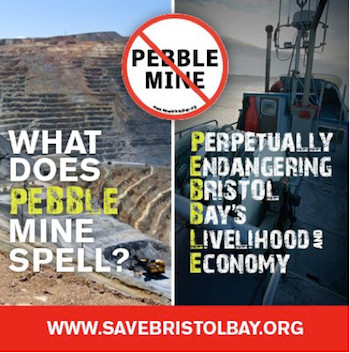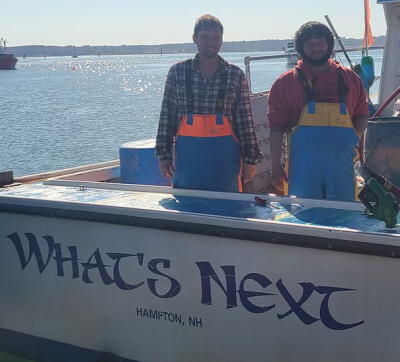Northern Dynasty Minerals announced this week that its appeal of the Pebble Mine decision is receiving new oversight and is likely to take a year or longer.
In November 2020, the U.S. Army Corps of Engineers rejected the mining company’s permit application to build Pebble Mine at the headwaters of Alaska’s Bristol Bay under its subsidiary Pebble Limited Partnership, following a battle with local residents, Native tribes and fishing stakeholders that spanned three decades.
The mining company submitted its appeal of the decision in January, and now the Corps has assigned a new review officer to the appeal, after the prior RO was promoted out of the position, according to a release from Northern Dynasty President and CEO Ronald Thiessen.
The release notes that “guidelines indicate the administrative appeal process should conclude within 90 days.” However, “the Pebble Partnership has been advised that the administrative appeal process for Pebble is likely to take a year or more given the complexity of the case and the scope of the administrative record.”
“We have been, and continue to be, very concerned about the USACE’s schedule and timeline for advancing our administrative appeal of the Pebble permitting decision, as we believe this does not accord with regulation,” said Thiessen.
Meanwhile, opponents of Pebble Mine are using all avenues to protect the region’s abundance of sustainable salmon, reveling in another record this year when nearly 66 million sockeye salmon returned to Bristol Bay’s river complex to spawn. The last record was set in 2018 at nearly 63 million. Recordkeeping began in 1893.
“Bristol Bay is a shining example that healthy ecosystems can and still do still exist,” Wink added. “It’s really an ecological treasure. We ask that state and federal government protect Bristol Bay salmon and the natural habitats that allow it to thrive.”
Pedro Bay Corp., a Native organization in Alaska’s Bristol Bay region, announced in late May that nearly 90 percent of its shareholders voted in favor of conservation easements for more than 44,000 of the corporation’s 92,100 acres of land in southwest Alaska. The agreement would make the land off-limits to development, including Pebble Corp.’s proposed mining road.
Supporters are also urging Congress and the Biden administration to take final action to protect the region through two options:
Clean Water Act Protections:
The Environmental Protection Agency should use its authority under section 404(c) of the Clean Water Act to veto the Pebble Mine. No other approach can create the immediate safety net for those who depend on Bristol Bay. The U.S. Army Corps of Engineers, the U.S. Fish and Wildlife Service, and the Environmental Protection Agency have all concluded that Pebble Mine will permanently damage Bristol Bay and its fishery. It's time to act on that science and give Bristol Bay immediate protection.
Step 2: Bristol Bay National Fisheries Area:
To ensure that Bristol Bay's protections are not reversed by future administrations, Congress should introduce and pass the Bristol Bay National Fisheries Area Act that will provide federal protection for the watersheds — and fisheries — of Bristol Bay, Alaska in perpetuity. This legislation should permanently ban any toxic mine waste from the proposed Pebble Mine and large scale projects like it that would harm Bristol Bay's rivers, lakes and wetlands.
“For two decades, the people of Bristol Bay have fought to protect our home from the threat of mines like Pebble because we recognize that our clean waters and lands are more precious than gold,” said United Tribes of Bristol Bay Board President Robert Heyano, a National Fisherman Highliner. “Pebble ignored the people of Bristol Bay at every step of the way, and continues to try to use politics and lies to advance this project and manipulate investors. Enough is enough. We need permanent protections that will provide us with certainty that projects like Pebble will never be allowed to devastate every facet of life in Bristol Bay.”







